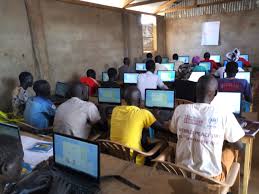Training Course on Leadership for Refugee Education Programs
Training Course on Leadership for Refugee Education Programs equips education leaders, NGO professionals, policy makers, and development practitioners with innovative leadership skills, strategic planning techniques, and community engagement tools.

Course Overview
Training Course on Leadership for Refugee Education Programs
Introduction
In today’s complex humanitarian landscape, Leadership in Refugee Education Programs is pivotal to creating sustainable, inclusive, and impactful learning environments for displaced communities. Training Course on Leadership for Refugee Education Programs equips education leaders, NGO professionals, policy makers, and development practitioners with innovative leadership skills, strategic planning techniques, and community engagement tools. With the increasing global focus on refugee education, leadership must adapt to challenges like trauma-informed teaching, education in emergencies, policy advocacy, and resource mobilization, ensuring no learner is left behind.
Empowered leaders in refugee education drive change by promoting inclusive education policies, cross-sector collaboration, and scalable solutions for education in displacement settings. This course bridges theory with practice, integrating global best practices, real-world case studies, and the latest frameworks such as the Inter-agency Network for Education in Emergencies (INEE) standards and SDG 4 - Quality Education for All. Through experiential learning, participants will develop the competencies to lead, innovate, and advocate effectively for refugees’ right to education.
Course Objectives
- Develop transformational leadership skills tailored to refugee education.
- Apply education in emergencies frameworks to leadership strategies.
- Strengthen inclusive education policies for refugee learners.
- Enhance cross-sector partnerships to support education initiatives.
- Implement trauma-informed teaching and leadership in crisis contexts.
- Drive policy advocacy for refugee education at national and global levels.
- Design sustainable education models for displaced communities.
- Apply strategic resource mobilization for education programs.
- Promote gender-responsive education leadership in refugee settings.
- Integrate monitoring, evaluation, and learning (MEL) in leadership practices.
- Utilize community engagement techniques for education sustainability.
- Navigate cultural competencies in multicultural refugee education environments.
- Foster digital learning innovations in resource-constrained settings.
Target Audiences
- Refugee Education Program Managers
- NGO and INGO Education Officers
- Policy Makers in Education Ministries
- UN and International Agency Staff
- School Leaders in Refugee Camps
- Community Education Facilitators
- Education Consultants and Researchers
- Donors and Philanthropists in Education
Course Duration: 5 days
Course Modules
Module 1: Foundations of Leadership in Refugee Education
- Principles of Transformational Leadership
- Understanding Refugee Education Ecosystem
- Leadership Challenges in Crisis Contexts
- INEE Minimum Standards for Education
- Visionary Planning for Education in Emergencies
- Case Study: Leadership Transformation in Kakuma Refugee Camp (Kenya)
Module 2: Policy Advocacy and Education Rights
- Education Rights under International Law
- Building Advocacy Campaigns
- Engaging Policy Makers and Stakeholders
- Crafting Policy Briefs for Refugee Education
- Aligning with SDG 4 & Global Education Agendas
- Case Study: Policy Influence in Syrian Refugee Education in Jordan
Module 3: Inclusive and Gender-Responsive Education Leadership
- Principles of Inclusive Education
- Gender Equity in Education Leadership
- Addressing Barriers to Access for Girls and Disabled Learners
- Equity-Based Resource Allocation
- Leadership in Anti-Discrimination Practices
- Case Study: Inclusive Leadership in Rohingya Refugee Camps (Bangladesh)
Module 4: Trauma-Informed Educational Leadership
- Understanding Trauma and its Impact on Learning
- Building Trauma-Sensitive Schools
- Psychosocial Support Strategies
- Training Teachers on Trauma Awareness
- Creating Safe Learning Spaces
- Case Study: Implementing Trauma-Informed Education in Ugandan Refugee Settlements
Module 5: Strategic Resource Mobilization
- Identifying Funding Opportunities
- Building Donor Relationships
- Proposal Writing and Grant Applications
- Financial Sustainability Strategies
- Leveraging CSR for Education Programs
- Case Study: Successful Resource Mobilization in Lebanon's Refugee Schools
Module 6: Cross-Sector and Community Engagement
- Building Multi-Stakeholder Partnerships
- Community-Driven Education Initiatives
- Mobilizing Local Leadership
- Cultural Competency in Leadership
- Strengthening Parent-Teacher Collaboration
- Case Study: Community Engagement Success in Dadaab Refugee Camp
Module 7: Monitoring, Evaluation, and Learning (MEL) for Education Programs
- Introduction to MEL Frameworks
- Data Collection Tools for Education Programs
- Impact Measurement Techniques
- Using Data for Decision Making
- Reporting and Continuous Learning
- Case Study: MEL Application in Refugee Education in Ethiopia
Module 8: Digital Innovations in Refugee Education
- Leveraging EdTech for Refugee Learning
- Remote Learning Solutions in Displacement
- Digital Literacy for Educators and Learners
- Addressing Digital Divide Challenges
- Designing Scalable Digital Education Models
- Case Study: Digital Learning Solutions for Syrian Refugees in Turkey
Training Methodology
- Interactive Workshops and Group Discussions
- Practical Case Studies and Real-World Examples
- Simulation Exercises and Role-Playing
- Expert Guest Lectures and Webinars
- Collaborative Problem-Solving Activities
- Action Planning for Institutional Implementation
Register as a group from 3 participants for a Discount
Send us an email: info@datastatresearch.org or call +254724527104
Certification
Upon successful completion of this training, participants will be issued with a globally- recognized certificate
Tailor-Made Course
We also offer tailor-made courses based on your needs.
Key Notes
a. The participant must be conversant with English.
b. Upon completion of training the participant will be issued with an Authorized Training Certificate
c. Course duration is flexible and the contents can be modified to fit any number of days.
d. The course fee includes facilitation training materials, 2 coffee breaks, buffet lunch and A Certificate upon successful completion of Training.
e. One-year post-training support Consultation and Coaching provided after the course.
f. Payment should be done at least a week before commence of the training, to DATASTAT CONSULTANCY LTD account, as indicated in the invoice so as to enable us prepare better for you.